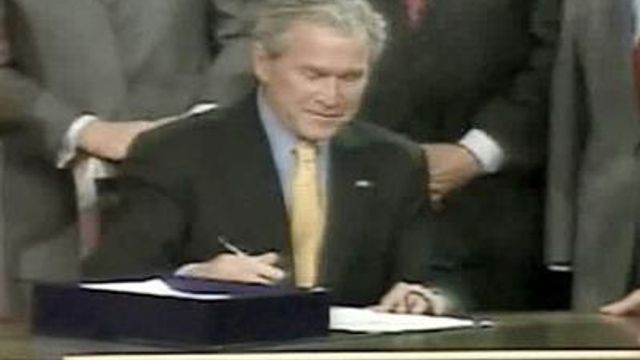Folks in the Triangle React to New Energy Bill
President Bush signed into law Wednesday a new energy bill that called for more fuel-efficient vehicles and required an boost in the use of ethanol made from corn.
Posted — UpdatedBush called the legislation a major step towards energy independence. It requires automakers to increase fuel economy by 40 percent to an average of 35 mpg by 2020.
Ann Faison drives more than 40 miles from Zebulon to her job in Raleigh everyday. She supports the energy bill's initiatives.
"I am very much into finding out how we can help ourselves and not depend on other people or places to supply what we need,” Faison said.
The legislation also calls for an increase in ethanol fuel to 36 billion gallons by 2022.
Roger von Haefen is an expert in environmental economics at N.C. State University. He said he has concern over the energy bill's claims.
"It takes gasoline to transport the corn to the ethanol plant and then distribute the ethanol to various parts of the country,” he said.
That means our need of foreign oil will not greatly reduce.
The big idea behind the energy bill is to replace older technologies with newer technologies. For example, reinventing the old light bulb and making home appliances more energy efficient.
Gregg Merritt works for Cree, a company in Research Triangle Park that is working to replace incandescent bulbs with LEDs, or Light Emitting Diode lights. LEDs use 1 to 3 kilowatt hours of energy while the incandescent bulbs use 12 to 105 kilowatts.
"It will take a couple years before there are no light bulbs as we know them, but it is happening now,” Merritt said.
More efficient could cause some products to have a larger price tag, but that extra cost should be partially offset by energy bill savings.
• Credits
Copyright 2024 by Capitol Broadcasting Company. All rights reserved. This material may not be published, broadcast, rewritten or redistributed.





